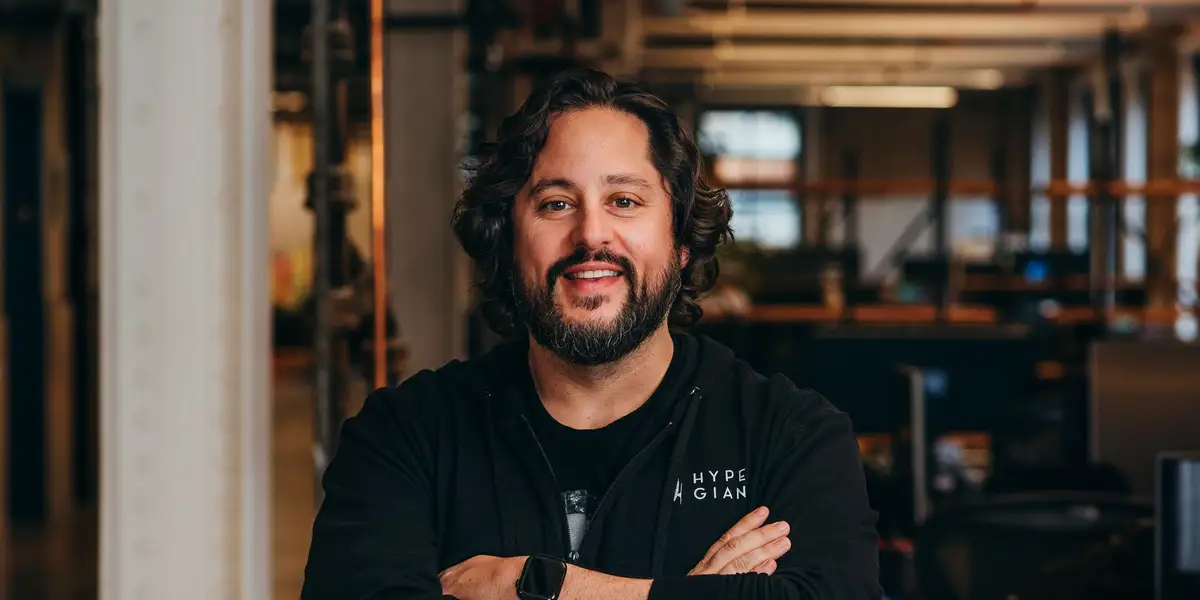A lot of advice on raising capital will sound similar: Get your stats together, make a pitch deck, and hit the pavement to network, network, network. And for the majority of companies, that’s effective.
For Ben Lamm, that’s how he raised capital for his first five ventures.
But what if you’re raising for a company that won’t have a 10x return in two years? What if your company is poised to bring wooly mammoths and dodo birds back from extinction?
That’s a moonshot. It requires a unique investor — and a change in fundraising tactics.
Ben’s latest venture, Colossal Biosciences, is the world’s first de-extinction company. He and his co-founder, the renowned geneticist George Church, launched Colossal in 2021 “on behalf of humanity, the animal kingdom and the universe at large.”
Colossal uses advanced genetic technology to sequence extinct species. But its tech doesn’t just apply to fighting de-extinction. There is overlap with the healthcare sector, national security and data analysis techniques. For that reason, many parties are interested in what’s cooking at the Colossal labs.
Because its tech has so many applications, Colossal has already spun off an AI-based computational biology platform called Form Bio. Ben anticipates that other spinoffs might be possible as Colossal sharpens its technology.
On an episode of the How I Raised It podcast, Ben explains what Colossal does, where it’s going and the particular kinds of investors that got the company to $225 million raised over three funding rounds.
A mammoth undertaking
Founders with compelling tech companies share their funding journeys with me often, but I typically keep our conversations focused on funding. However, Colossal’s technology is so groundbreaking that I had to know more.
First, how? A combination of technologies makes creating a base genome possible, including genetic rescue technology, next-gen sequencing technologies, AI and computer analyses to understand the genomes, CRISPR tech to edit the genomes, and advanced reproductive tech to bring the genomes to life. The company also has a team working on external wombs, but that’s a distant-future project.
And then, why the wooly mammoth specifically? Colossal is focused on the wooly mammoth because it could increase the biodiversity of the Arctic, which has declined because of climate change.
And finally, can he build Jurassic Park?
Probably — and fortunately — the world will stay velociraptor-free. Colossal Biosciences cannot bring back dinosaurs. But the wooly mammoth is within reach because it became extinct in more recent history. While scientists can identify whether bones are from a specific type of dinosaur, there’s not enough DNA in fossils to reconstruct a dinosaur.
Patient, pioneering investors
Colossal raised $225 million over two years through Series A, B, and C rounds. The company launched with an ambitious scientific proposition but no actual scientists on staff. Ben had a good track record from his past companies, but Colossal was too big of a concept for his prior investors.
He realized he couldn’t follow the standard equation to raise for Colossal. He focused on what he calls “the patient investor” — those who had previously supported slow-growing, pioneering ventures, like Thomas Tull, Jim Breyer, Tim Draper, and Tom Chi, the co-founder of Google X.
“These people are foundational investors in moving industries forward,” Ben says.
Once he identified those key parties, Ben concentrated less on pitching and more on thoughtful conversations about the realities of our changing world. In the face of losing up to 50% of Earth’s current biodiversity by 2050, having the technology to preserve and (potentially) bring back pollinators and keystone species is critical to our survival. Fostering that development is in everyone’s best interest.
But even after finding willing and understanding investors, Colossal’s fundraising journey wasn’t a cinch.
“People think because we’ve raised a lot of money, it’s been easy. I’ve heard the stories — like, Oh, I met with a VC at a bar the night before. He wrote a term sheet on a napkin and signed it in blood. That’s never happened for me,” Ben jokes.
World problems, Colossal solutions
Because Colossal’s technology doesn’t only pertain to bringing back extinct animals, many different groups are interested in Colossal’s success. One such concern is In-Q-Tel, the CIA’s investment arm. (Fun fact: The “Q” is an intentional reference to James Bond’s tech guru.)
“Synthetic biology is a world problem, not just a private venture capital problem. And it’s a world solution,” Ben explains. “The ability to build technologies that engineer life in different capacities, whether that’s to secure disease, remove plastics or clean up waterways, is something that’s very interesting to the federal government and to other governments around the world.”
While $225 million might seem like a big chunk of change, Colossal needs every bit of it. It now employs 30 post-doc researchers and 110 employees worldwide. Add in the policy layer and Colossal’s collaborations with governments across the world, and $225 million disappears fast.
“While it seems big, what we’re doing is not easy,” Ben says.
Conserve and protect
Despite being such a unique and niche company, Colossal’s feedback from the scientific community is overwhelmingly positive. However, the main criticism Ben hears about Colossal is that it might divert funds from conservation, which is a more urgent concern than de-extinction.
He agrees that conservation is important. Ben and the Colossal team try to avoid dipping into the same pools as conservation groups.
“Our goal is to bring money in new money into conservation. We went to technology investors, not conservation people spending time in Africa saving elephants,” Ben says. “We intentionally went to different people and different investor groups versus nonprofits or grants, because we didn’t want to detract from conservation.”
In fact, Colossal’s technologies can help conservation efforts. The company is building a portfolio of conservation partnerships to help address the issue holistically and sustainably. Right now, that includes support for several organizations that protect endangered elephants.
Moonshot thinking
Ben founded (and raised for) five companies before Colossal Biosciences. With all that experience, what does he wish he’d done differently?
Earlier in his career, he focused more on SaaS developments. While there’s nothing wrong with that, he wishes he had transitioned to the more meaningful work of deep tech sooner. He’d tell his younger self to pursue “moonshot” endeavors fearlessly — “because I just find a lot more fulfillment from it,” he says.
Though the journey — and finding the right investors —may be more difficult, Colossal’s work is transformative and powerful. After all, the world might see a wooly mammoth calf as soon as 2028. What’s more astounding than that?
He is also the CEO of Fundingstack.com which is a platform for VCs and investment bankers to both raise capital and assist clients and their portfolio companies.
Users of these platforms have raised over $15 billion since 2016.
This article is based on an episode of Foundersuite’s How I Raised It podcast, a behind-the-scenes look at how startup founders raise money.


